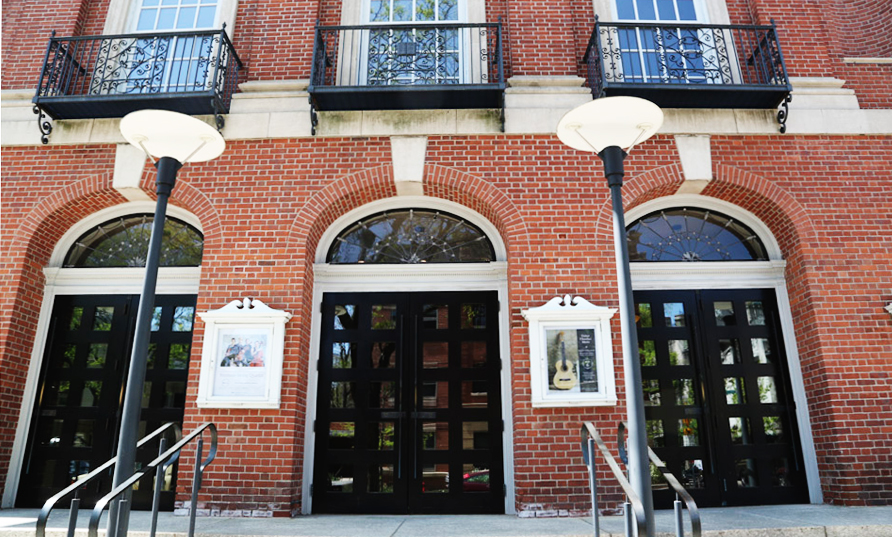
The School of Music launched its first collaboration with online education platform Coursera, an online class entitled “Music and Social Action,” at Sprague Hall on Monday.
The course, taught by music lecturer and MacArthur Fellow Sebastian Ruth and filmed in part by the Yale Broadcasting Company, explores the roles and duties musicians have in society and how classical music can create social change. Enrollment for the class occurs in several consecutive sessions, with the current registration cycle ending March 3 and the following starting March 21. Associate Dean of the School of Music Michael Yaffe noted that this is the only course offered by the School of Music on Coursera so far, but that there is a possibility for other classes to be offered in the future depending on the feedback given by this year’s students. Yale already has over a dozen courses offered on Coursera in the fields of economics, history of art and psychology.
“The main goal was to simulate a discussion about the role of arts contributing positive change in our community,” Ruth said. “Do we think of music experiences as leisure or are they a more fundamental part of public dialogue?”
Ruth said he would argue that music is indeed a more fundamental part of public dialogue, but he was still interested in stimulating discussion on the subject.
Yaffe noted that it took approximately 13 months to film, edit and produce the course, which was based on several similar courses Ruth taught at the School of Music. The class is spread across seven weeks and students need to work about two to three hours each week to complete the assignments. Ruth added that the filming was mostly done by the Yale Broadcasting Company, with lectures filmed in the company’s center, at the School of Music or elsewhere in New Haven.
Lucy Caplan GRD ’20, a teaching assistant for the course, explained that the class has three main areas of focus. It investigates philosophers’ ideas on education and aesthetics including those of education reformers John Dewey and Maxine Greene, looks at historical examples of social change exerted by musicians and highlights contemporary examples of this practice through conversations with community art leaders and eminent musicians like jazz pianist Vijay Iyer and classical pianist Jonathan Biss.
Ruth also noted that the online audience can choose to take the full seven-week course, complete with quizzes and assignments, or can opt to watch only the lecture videos. He also added that this allows a large number of people to familiarize themselves with the topic.
“One thing that I find interesting about Coursera is the wide range of learners,” Ruth said. “Some may be college age, some may be retirees continuing education or even professionals in the field. There are so many potential audiences.”
This project is not Ruth’s first attempt at creating a connection between music and social change. Ruth is founder and artistic director of Community MusicWorks, an organization that connects professional musicians with urban youth and families in Providence, Rhode Island. Ruth noted that something as simple as “a true art experience can trigger people to rethink their lives.”
Like Ruth, Yaffe said he believes that social change can be created through music, citing the example of the Music in Schools Initiative. A School of Music project, the initiative aims to bring musical education to hundreds of New Haven students but has an additional impact on their families as well, reflecting just how music can have an influence on social change, Yaffe said.
“Playing music with and for other people is an incredible way to connect, because it brings people together in a way that requires generosity, empathy and careful listening,” Caplan said. “To my mind, this sort of environment sets the stage for thinking differently and creatively about the world we live in, and how we might aspire to make that world better.”
The School of Music’s decision to join Coursera was part of a list of activities that the institution had in mind that they were interested in exploring, Yaffe told the News. He added that he and Dean of the School of Music Robert Blocker sat down and discussed thoughtfully about what would be the best course to offer to an online audience.
“There is a lot of material online about music history or performance,” Yaffe said. “But Sebastian Ruth’s class was a very distinctive one and it tied to Dean Blocker’s concept of cultural leadership, which means that our students should not be just great musicians but should also have an impact on the world besides playing an instrument.”







